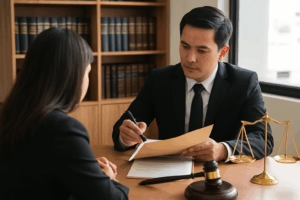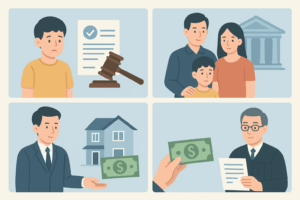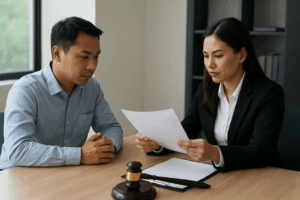In the fast-paced realm of social media, influencers wield significant influence over their followers, shaping opinions and driving engagement with their content. However, amidst the freedom of expression, it’s crucial for influencers operating in Thailand to tread carefully when it comes to defamation laws. With strict regulations in place, understanding and adhering to defamation laws is paramount to avoid legal repercussions. In this comprehensive guide, we’ll delve into the nuances of defamation laws in Thailand, offering essential insights for social media influencers and highlighting the importance of partnering with a reputable Bangkok law firm to navigate potential legal challenges effectively.
Understanding Defamation Laws in Thailand
Defamation refers to the act of making false statements that harm the reputation of an individual or entity. In Thailand, defamation laws are governed by both civil and criminal statutes, with severe penalties for offenders. Key aspects of defamation laws in Thailand include:
Civil Liability: Under civil law, individuals or entities can file defamation lawsuits seeking compensation for damages to their reputation or business interests. Plaintiffs must prove that the defamatory statements were false and caused harm to their reputation or financial standing.
Criminal Offense: Defamation is also considered a criminal offense in Thailand, punishable by fines and imprisonment. Criminal defamation charges can be filed by individuals, government officials, or organizations, with penalties ranging from fines to several years of imprisonment.
Lèse-majesté Laws: Thailand has additional laws, known as lèse-majesté laws, that prohibit defamatory statements against the monarchy. Criticizing or insulting the monarchy, even on social media, can result in severe legal consequences, including lengthy prison sentences.
Online Defamation: With the rise of social media and online platforms, defamation cases related to online content have become increasingly common in Thailand. Influencers must be mindful of the content they post online, as defamatory statements made on social media platforms can lead to legal action.
Common Pitfalls for Social Media Influencers
Social media influencers may inadvertently run afoul of defamation laws in Thailand due to the public nature of their platforms and the potential reach of their content. Some common pitfalls to avoid include:
False Statements: Making false statements about individuals, businesses, or public figures can lead to defamation claims. Influencers must ensure that the information they share is accurate and supported by credible sources to avoid allegations of defamation.
Negative Reviews and Criticism: While honest opinions and fair criticism are generally protected forms of expression, influencers should be cautious when posting negative reviews or criticisms that could be perceived as defamatory. Constructive feedback should be presented in a respectful manner and based on factual information to avoid defamation claims.
Rumors and Gossip: Spreading rumors or unsubstantiated gossip about individuals or businesses can result in defamation allegations. Influencers should refrain from sharing or endorsing potentially defamatory content without verifying its accuracy and credibility.
Lèse-majesté Violations: Criticizing or insulting the monarchy, even inadvertently, can have severe legal consequences under Thailand’s lèse-majesté laws. Influencers must exercise caution when discussing topics related to the monarchy to avoid violating these strict regulations.
Reposting Defamatory Content: Reposting or sharing defamatory content created by others can also expose influencers to liability. Even if the content was not originally authored by the influencer, sharing defamatory material without authorization can still result in legal consequences.
Navigating Defamation Risks with a Bangkok Law Firm
Given the complexities of defamation laws in Thailand, social media influencers can benefit significantly from partnering with a reputable Bangkok law firm specializing in defamation and media law. Here’s how a trusted legal partner can help influencers navigate defamation risks effectively:
Legal Guidance: A knowledgeable attorney can provide comprehensive legal guidance on defamation laws in Thailand, helping influencers understand their rights and obligations under the law.
Content Review: Legal experts can review influencer content before publication to identify any potential defamation risks and provide guidance on mitigating these risks effectively.
Crisis Management: In the event of a defamation allegation or legal dispute, a Bangkok law firm can provide strategic advice and representation to help influencers navigate the legal process and achieve a favorable resolution.
Training and Education: Law firms can offer training sessions and educational resources to help influencers understand defamation laws and best practices for avoiding legal pitfalls in their content creation and promotion.
Risk Mitigation Strategies: Legal professionals can develop proactive strategies to minimize defamation risks, such as implementing clear content policies, obtaining consent for user-generated content, and monitoring online discussions for potential defamation threats.
Conclusion: Safeguarding Your Reputation with Legal Expertise
As social media influencers continue to wield influence in Thailand’s digital landscape, understanding and complying with defamation laws is essential to protect your reputation and legal interests. By partnering with a reputable Bangkok law firm specializing in defamation and media law, influencers can navigate potential legal challenges with confidence and integrity. Let us be your trusted legal partner in safeguarding your brand’s reputation and ensuring compliance with defamation laws in Thailand. Contact [Insert Bangkok law firm name] today to learn how we can help you navigate the complexities of defamation law and mitigate legal risks effectively.
Contact : Siam Center Law Group by calling +66(0) 2 648 5041, +66(0) 2 648 5042





